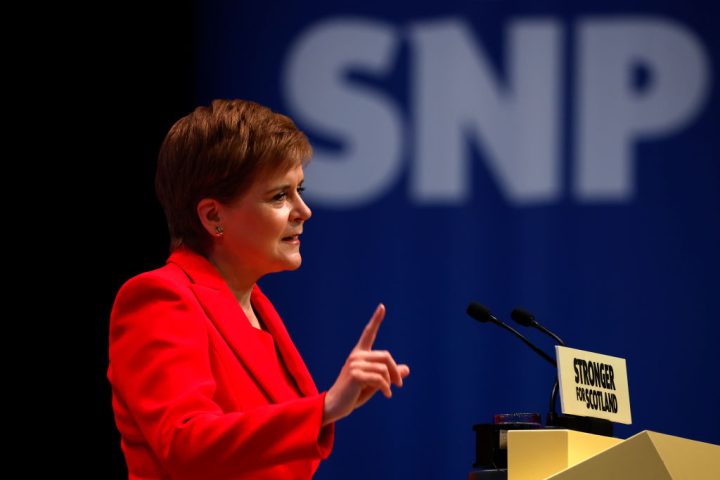The arrest of Nicola Sturgeon by police investigating allegations of fraud within the SNP was hardly unexpected. After all, her husband – the party’s former chief executive, Peter Murrell – and the SNP’s past treasurer, Colin Beattie MSP, have already spent time helping officers with their enquiries. It was only a matter of time until the cops got to Sturgeon.
Nonetheless, the shock of news – broken in a tweet from Police Scotland at 2.29pm on Sunday afternoon – that she was in custody as a suspect was undiminished.
Until her surprise resignation as SNP leader – and, thus, first minister of Scotland – in February, Sturgeon was widely considered one of the pre-eminent political figures of her generation. Her reputation as an unusually gifted practitioner of the political arts stretched far beyond Scotland. She was that rare thing in UK politics – a figure with an international profile.
But just weeks after she resigned, a police raid on her home – and the SNP’s offices – rather tarnished that reputation. Murrell may have faced the indignity of a knock on the door from investigating officers when he was arrested, and the couple’s home searched, but Sturgeon attended a police interview on Sunday by appointment. She has since been released without charge, pending further investigations.
The investigation into the SNP has hurt the party’s ratings – it remains the most popular in Scotland, but support is slipping away – and made it impossible for Sturgeon’s successor, Humza Yousaf, to create anything approaching stable government.
Since taking office in March, he has spent much of his time fending off questions about a crisis bequeathed to him by his predecessor. During the SNP leadership campaign, Yousaf was thrilled to be seen as the continuity candidate, as Sturgeon’s chosen one. That endorsement quickly began to look like a curse.
On Sunday morning’s Laura Kuenssberg show on BBC One, Yousaf was asked whether he’d spoken with Sturgeon lately. Yes, he said, he had been asking about her welfare and could report, ‘she’s in a good place and doing well, for sure’. That assessment wasn’t to age well.
The timing of Sturgeon’s arrest could scarcely be worse for the SNP. The departure from the House of Commons of the nationalists’ favourite bogeyman, Boris Johnson, and ensuing civil war should have been a gift to the SNP. The party should have been able to sustain itself on righteous indignation about Tory chaos and sleaze for weeks. Instead, the nationalists find themselves living in a huge glass house.
Fundamental to the SNP’s rise from being a fringe party to becoming the dominant political force in Scotland has been its ability to cast itself as different to the usual suspects: other parties were riddled with sleaze while the SNP was a model of decorum and integrity.
A great many Scots enthusiastically bought into the idea that the nationalists truly represented a new kind of politics. As the Police Scotland investigation into the SNP intensifies and Nicola Sturgeon endures the indignity of arrest and the status of suspect, the nationalists don’t look quite the paragons they’d have voters believe.
Not so long ago, the idea the SNP might lose a Scottish election was inconceivable. Right now, Scottish Labour leader Anas Sarwar could be forgiven for allowing himself to dream.







Comments